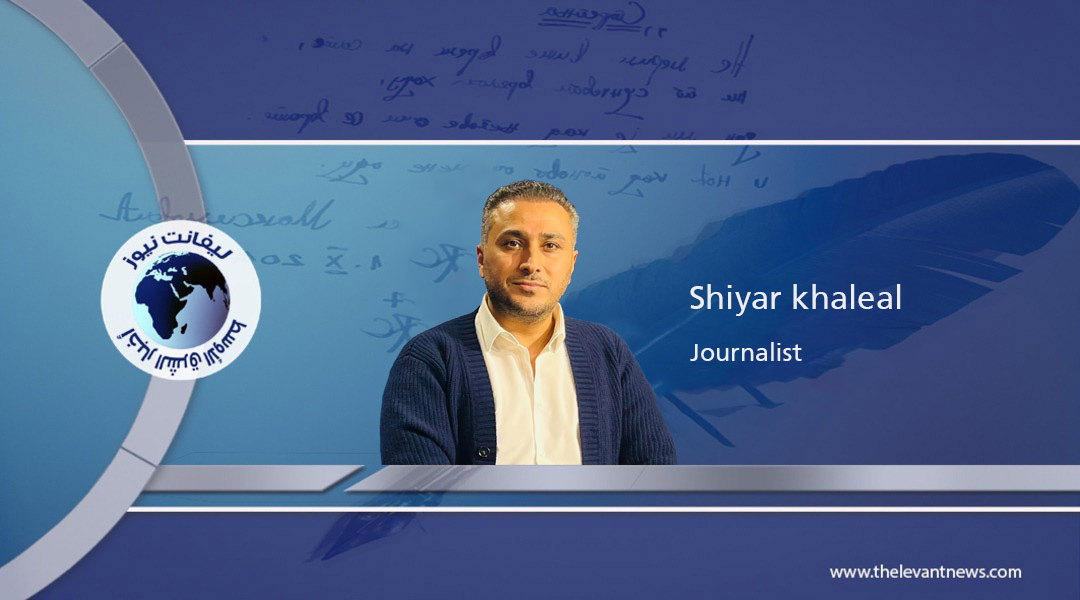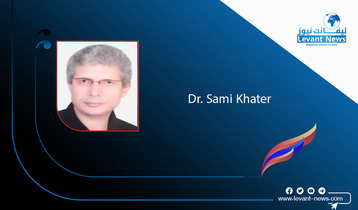-
Iran and Sectarian Strife in Syria: A Call for Unity and Fair Accountability

Amid the increasing tensions engulfing Syria, Iran's role emerges as one of the prominent regional powers that stokes internal conflicts and exploits chaos to achieve its interests. Recent scenes witnessed in several Syrian areas, where sectarian slogans like "O Ali" and "O Hussein" have risen, led by individuals supported by Iran, clearly reflect an organized exploitation of societal divisions and sectarian tensions. These events, when compared to the recent statements of Iranian Supreme Leader Ali Khamenei, provide a clear picture of Iran's strategy in Syria, which aims to keep the country hostage to chaos and infighting.
Khamenei's statements, in which he claimed that "the Syrian youth have nothing to lose" and that they must confront those "who planned this chaos," are not just passing words but rather inciting rhetoric aimed at dragging Syrian youth into new conflicts that serve Iranian regional interests. Khamenei, who attempted to justify Iran's intervention in Syria by denying the existence of "proxy forces," overlooks his country’s direct role in supporting sectarian militias that have contributed to the dismantling of Syrian society and destabilizing it.
This inciting rhetoric coincides with the rising tensions in Alawite areas that have witnessed protests exploiting religious and sectarian symbols to enhance division. Iran, fully aware of the fragility of the Syrian situation following the decline of the Assad regime's influence, seeks to exploit this chaos to impose its regional agenda, taking advantage of the poverty, unemployment, and insecurity faced by Syrian youth. This policy does not aim to protect Syrians but rather to use them as fuel for Iranian hegemony projects.
Just as happened in Iraq after 2003, where Iran exploited sectarian divisions to enhance its influence, it is today trying to repeat the same scenario in Syria. The bombing of the shrine of the two military Imams in Samarra in 2006, which sparked sectarian fighting in Iraq, represents a model of Iran's strategy in exploiting religious symbols to create a favorable environment for intervention and control. In Syria, we witness similar policies aimed at changing the demographic composition through support for sectarian settlement in certain regions. These strategies reflect Iran's insistence on reinforcing its hegemony, even at the expense of Syrian unity and stability.
However, the greatest challenge today is not limited to confronting Iranian interventions but also includes the internal responsibility of all components of the Syrian people, including the Alawite community. The Alawite community, as an integral part of Syrian society, has a historical responsibility to prevent itself from being turned into a tool in the hands of external powers. It must realize that its true interests lie in preserving the unity of the homeland and engaging in an inclusive national project away from narrow calculations and sectarian divisions.
Syria can only rise with a comprehensive national project that rebuilds national identity on the foundations of justice and equality. This project cannot be achieved without comprehensive and fair accountability for all war criminals, regardless of their affiliations or positions. Justice is not only a moral demand but a prerequisite for achieving national reconciliation and ensuring that the tragedies of the past are not repeated. Fair trials, overseen by independent human rights entities, will restore trust among the components of the Syrian people and put an end to the cycle of violence and revenge.
In this context, the Ministry of Justice must play a pivotal role in achieving justice and promoting the rule of law. Activating the role of the ministry is not limited to pursuing inciters and criminals; it also includes building strong and independent judicial institutions capable of facing current and future challenges. Justice must be all-encompassing and non-selective, affecting all those involved in bloodshed or incitement, regardless of their nationality or sect.
National unity is not an option that can be postponed; it is an existential necessity for preserving Syria as a unified and independent state. Division, fueled by regional and international powers, is the greatest danger threatening the country. Syrians must realize that their true interest lies in enhancing solidarity and working together to build a strong state based on respect for rights and equality.
Khamenei's statements, along with his attempts to exploit the Syrian situation, should serve as a call for Syrians to rally around a national project that puts an end to external interventions. Sectarianism is not the solution; it is a trap leading to further destruction and division. Intellectuals and local leaders must play a role in raising awareness in their communities about the dangers of falling into external agendas and working to promote national dialogue that rebuilds trust among various components.
Building the future of Syria requires political will and collective courage to abandon narrow calculations and engage in a comprehensive project that restores the dignity and homeland of Syrians. Justice and accountability are not only a guarantee of justice for victims, but are also a prerequisite for building a future based on reconciliation and peace. Syria will not be strong and stable except through its national unity, which is built on the foundations of justice, equality and accountability, far from foreign interventions and the rotten illusions of sectarianism.
Levant-Shiar Khalil
You May Also Like
Popular Posts
Caricature
BENEFIT AGM approves 10%...
- March 27, 2025
BENEFIT, the Kingdom’s innovator and leading company in Fintech and electronic financial transactions service, held its Annual General Meeting (AGM) at the company’s headquarters in the Seef District.
During the meeting, shareholders approved all items listed on the agenda, including the ratification of the minutes of the previous AGM held on 26 March 2024. The session reviewed and approved the Board’s Annual Report on the company’s activities and financial performance for the fiscal year ended 31 December 2024, and the shareholders expressed their satisfaction with the company’s operational and financial results during the reporting period.
The meeting also reviewed the Independent External Auditor’s Report on the company’s consolidated financial statements for the year ended 31 December 2024. Subsequently, the shareholders approved the audited financial statements for the fiscal year. Based on the Board’s recommendation, the shareholders approved the distribution of a cash dividend equivalent to 10% of the paid-up share capital.
Furthermore, the shareholders endorsed the allocation of a total amount of BD 172,500 as remuneration to the members of the Board for the year ended 31 December 2024, subject to prior clearance by related authorities.
The extension of the current composition of the Board was approved, which includes ten members and one CBB observer, for a further six-month term, expiring in September 2025, pending no objection from the CBB.
The meeting reviewed and approved the Corporate Governance Report for 2024, which affirmed the company’s full compliance with the corporate governance directives issued by the CBB and other applicable regulatory frameworks. The AGM absolved the Board Members of liability for any of their actions during the year ending on 31st December 2024, in accordance with the Commercial Companies Law.
In alignment with regulatory requirements, the session approved the reappointment of Ernst & Young (EY) as the company’s External Auditors for the fiscal year 2025, covering both the parent company and its subsidiaries—Sinnad and Bahrain FinTech Bay. The Board was authorised to determine the external auditors’ professional fees, subject to approval from the CBB, and the meeting concluded with a discussion of any additional issues as per Article (207) of the Commercial Companies Law.
Speaking on the company’s performance, Mr. Mohamed Al Bastaki, Chairman BENEFIT , stated: “In terms of the financial results for 2024, I am pleased to say that the year gone by has also been proved to be a success in delivering tangible results. Growth rate for 2024 was 19 per cent. Revenue for the year was BD 17 M (US$ 45.3 Million) and net profit was 2 Million ($ 5.3 Million).
Mr. Al Bastaki also announced that the Board had formally adopted a new three-year strategic roadmap to commence in 2025. The strategy encompasses a phased international expansion, optimisation of internal operations, enhanced revenue diversification, long-term sustainability initiatives, and the advancement of innovation and digital transformation initiatives across all service lines.
“I extend my sincere appreciation to the CBB for its continued support of BENEFIT and its pivotal role in fostering a stable and progressive regulatory environment for the Kingdom’s banking and financial sector—an environment that has significantly reinforced Bahrain’s standing as a leading financial hub in the region,” said Mr. Al Bastaki. “I would also like to thank our partner banks and valued customers for their trust, and our shareholders for their ongoing encouragement. The achievements of 2024 set a strong precedent, and I am confident they will serve as a foundation for yet another successful and impactful year ahead.”
Chief Executive of BENEFIT; Mr. Abdulwahed AlJanahi commented, “The year 2024 represented another pivotal chapter in BENEFIT ’s evolution. We achieved substantial progress in advancing our digital strategy across multiple sectors, while reinforcing our long-term commitment to the development of Bahrain’s financial services and payments landscape. Throughout the year, we remained firmly aligned with our objective of delivering measurable value to our shareholders, strategic partners, and customers. At the same time, we continued to play an active role in enabling Bahrain’s digital economy by introducing innovative solutions and service enhancements that directly address market needs and future opportunities.”
Mr. AlJanahi affirmed that BENEFIT has successfully developed a robust and well-integrated payment network that connects individuals and businesses across Bahrain, accelerating the adoption of emerging technologies in the banking and financial services sector and reinforcing Bahrain’s position as a growing fintech hub, and added, “Our achievements of the past year reflect a long-term vision to establish a resilient electronic payment infrastructure that supports the Kingdom’s digital economy. Key developments in 2024 included the implementation of central authentication for open banking via BENEFIT Pay”
Mr. AlJanahi concluded by thanking the Board for its strategic direction, the company’s staff for their continued dedication, and the Central Bank of Bahrain, member banks, and shareholders for their valuable partnership and confidence in the company’s long-term vision.
opinion
Report
ads
Newsletter
Subscribe to our mailing list to get the new updates!




















